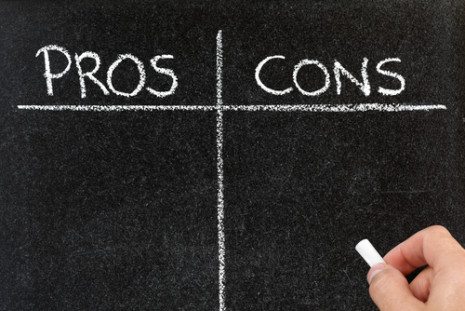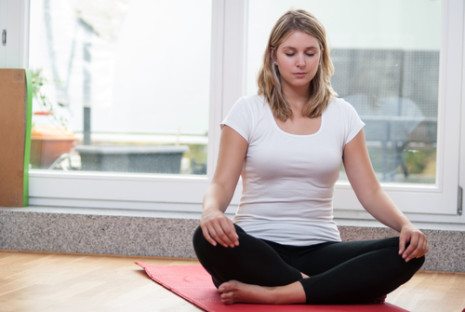Do you engage in habitual behaviors that harm your health? Some may be obvious- such as driving through your local fast food restaurant for lunch every day, and some perhaps not so obvious– such as consuming a bottled energy drink or booster, or even purchasing disposable diapers (no, these are not recommended!).
Many habits can be harmful to your overall health and well-being, and in fact, some of these health-destroying habits can actually become physical addictions.
But the good news it that you are more powerful than you can even imagine, right now as you read this. So while you may have developed some not so great habits, you have the power to create positive changes.
How We Form Habits
According to the National Institutes of Health, most bad habits form in one of two ways: repetition or by triggering the pleasure/reward centers of your brain.
When you trigger these centers, your brain releases dopamine, a chemical associated with good feelings.
This release of dopamine reinforces the habit, trigger the desire to perform the pleasure inducing behavior again.
How To Stop Bad Habits
If you are addicted to drugs or alcohol, I recommend seeking professional support. If, however, you suffer as so many of us do from dietary long-term bad habits, then you may benefit from these effective strategies.
1 – Acknowledge the bad habit. This is always the first step, because you can’t fix what you don’t acknowledge. (Example: Buying a bag of chips…and eating the whole bag. Yes, it’s a problem).
2 – Identify the behaviors you need to change in order to break the habit. (Example- Don’t walk by the chip aisle in the supermarket no matter what).
3 – Identify the triggers that lead to those behaviors. By identifying your emotional, physical, and psychological triggers that lead to he behaviors, you can head off a lapse before it occurs. Likewise, if you know your triggers you can avoid them.
4 – Set goals. Set a long-term goal, as well as a series of short-term goals.
5 – Reward yourself. When you’ve achieved a short-term or long-term goal, give yourself a healthy reward such as a few extra minutes of free time or an indulgent beauty treatment.
6 – Focus on one habit at a time. While you may want to change everything all at once, it’s best to focus your mental and emotional energy on changing just one habit at a time. That way, your focus isn’t diluted. Once you’ve changed one habit, you can move onto the next.
7 – Seek support. When you tell your friends and family you are trying to break bad habits and form new ones, you do two things.
First, you build a network of supportive people who can help you through the difficult times.
Second, you create a level of accountability for yourself by engaging others in your process.
8 – Create an environment that fosters success. For example, if you’re trying to break a sugar habit, remove refined sugar treats from your house.
9 – Visualize. Visualization is a powerful tool that can help you change your behaviors. Find a quiet place and sit or lie down with your eyes closed.
Visualize yourself avoiding your bad habit and replacing it with a healthier one.
10 -Practice. Once you’ve identified situations in which you are most likely to engage in your unhealthy habit, you can mentally practice.
For example, if you’re trying to break a caffeine addiction, mentally practice how you will handle the situation if someone offers you a cup of coffee.
11 – Replace negative habits with positive behaviors. If you have an energy drink for a morning pick-me up, try replacing it with some quick, energizing stretches first thing in the morning.
12 – Scale back gradually. In some cases, cold turkey isn’t the way to go. If you’re trying to make a major change such as giving up processed foods, for instance, you may want to break into smaller changes that you incorporate one at a time.
13 – Give yourself a break. Everyone falls off the wagon from time to time. If you slip up and revert to your bad habit, don’t resort to negative self-talk.
Instead, acknowledge the slip and vow to get right back to your new, better habits.
14 – Avoid self-justification. The human brain is sneaky! Without realizing we do it, our brains justify thousands of behaviors and choices that adversely affect us.
Listen to your self-talk and learn to recognize when you justify behaviors.
Thoughts such as “just this once,” or “I deserve this” can lead to a quick return to unhealthy habits.
15 – Keep a journal. If you know you’ll be writing things down at the end of each day, you’ll be more likely to hold yourself accountable for the goals you set for yourself.
16 – Keep changes simple. The more rules you set up for yourself, the more difficult they will be to adhere to. Instead, make the changes you seek simple and easy to follow.
17 – Avoid “should” and “shouldn’t.” These two words are filled with self-judgment and self-justification. Instead, replace should and shouldn’t with will or won’t and do or don’t.
18 – Focus on behaviors you can change. Twelve step programs often involve the serenity prayer, which starts out, “God grant me the serenity to accept the things I cannot change; courage to change the things I can; and wisdom to know the difference.”
Focusing on things you can’t control makes you feel out of control.
By focusing on those things you can change, you’ll feel more empowered.
19 – Make a list of pros and cons. How will your life and health be better if you break this bad habit? How does the habit benefit you now?
Make a list of reasons to break the habit and reasons to not break it.
When you see how much the benefits of breaking the habit outweigh the risks of maintaining it, the decision becomes clearer and easier.
20 – Get back on track right away. Don’t use slips as a reason to give up. Instead, stay the course.
21 – De-stress. Stressful situations can cause us to return to familiar patterns of behavior. Find a way to manage your stress – with meditation, exercise, yoga, or some other activity that helps calm you.
22 – No excuses. It’s easy to make excuses to return to negative patterns of behavior. Maintain your integrity by keeping the promises you’ve made to yourself and accept no excuses.
23 – Live in the moment. One of the most difficult aspects of breaking a bad habit is by looking to the future and trying to determine how you will hold up over the long-term.
Instead, focus on the moment.
It’s easy to make decisions in each moment towards your goals.
24 – Practice affirmations. Every day, look at yourself in the mirror and state a positive affirmation about breaking your habit.
For example, if you’re trying to stop smoking, you might affirm, “I am smoke free, healthy, and happy.”
I truly believe meditation and your form of prayer and spiritual connection are really important.
25 – Do it now. You can’t break a bad habit if you keep putting it off for a better time. The best time to get started is right now. The sooner you start, the sooner you’ll be on your way to a healthier, happier you.
In Love and Health,
Kimberly





This advice was helpful and insightful.
These are great tips! Thank you so very much.
I wanted a healthier body and since I have been eating WAY MORE vegetables (also doing Liver cleanse under a ND’s watch) I now know that processed sugar and chocolate (it is true for me :( but not for everyone) cause acne breakouts. I have also taken a MAJOR chunk of wheat/bread products out of my diet and gone drastically more gluten free and my tummy is not puffy anymore which means I am digesting my foods WAY BETTER!!! I also don’t each protein 2-3 times a day like I used to (because I thought that was what we were supposed to do), and my digestion has dramatically IMPROVED!!!
I now have a 194 reasons to work on my bad habits. This info is very helpful.
Hi Kimberly, This is very well written ,,, I have taken a lot from it and will use it everyday to help me in my life changes…Thank you very much for sharing…Kitty….
You are amazing. This is just what I needed. Thank you so much. I am so looking forward to the new book. Thanks Kim for all you to to help us get healthy and glowing. XOXO
Aw thank you! Yeah, I have some high end things, but I think there’s a ton of great makuep that is less expensive. You just have to try it out, not everything is good quality. That’s why I post videos like this :) I found lots of great products just by watching other girls’ reviews her on YT
Thanks for the tips! These are so true! I like the tip about making the changes slowly. In my personal experience, I’ve found that if I cut out all the “bad stuff” too quickly, it will feel like I’m depriving myself and I’ll end up craving it even more. I have found that switching my focus has been more rewarding. For example, instead of focusing on cutting out all the “bad stuff,” I instead add more of the “good stuff” (nutrients, greens etc.). By adding more of the good, eventually there will be no more room for the bad, and your taste buds will become accustomed to the delicious nutrients your body needs.
Hi Kimberly,
Thank you for this positive and encouraging list. In a world cluttered with excessive amounts of junk food (even vegan junk food), it’s very easy to stray from a healthful and whole foods diet, but these tips are spot on.
I have a side question about something that was brought to my attention recently, here’s a link, what are your thoughts? This article is from pubmed.
Thanks in advance for your insights.
Healthy Regards,
RAM
Hello,
I’m trying to eat gluten/dairy/meat/sugar free with few exceptions during the week when I’m at the university. My skin did improve and overall I felt way better, waking up early and without headaches which is great because I used to wake up extremely late feeling bad. But for almost a week now I feel extremely bloated and it starts worrying me because it is so bad that I’m actually experiencing pain.
What did I do wrong or what could I do different? Any ideas if this is normal and will disappear the longer I try to stick to my diet?
Thank you!
Hi Kimberly. This is off topic, but I was wondering how you felt about blackstrap molasses. I’m interested in it due the high iron content, but does the sugar factor make it a bad choice? Thanks!
Some great tips here for beating those bad habits. I particularly like #20. Many people will try to change their habits and going to a shame spiral after failing on a single occasion. It is the, “what the hell” effect. People slip up, and then they get worse and believe they cannot change their habits.
We all make mistakes, but it is more important to get back on the horse than to be perfect.
-SJ
the difficult person in me..well, she’s the person i see whenever i face the mirror..because of my insecurities in life..i still couldn’t accept and forgive myself..please pray for me..God bless you Bro. Bo..may your tribe increase!!